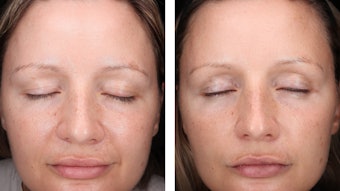
Editor's note: The "Words from Wiechers" series considers the many lessons the cosmetics R&D industry can learn from the late Johann Wiechers, Ph.D. He was a critical thinker, advisor, colleague and leader in the industry until his unexpected passing. Presenting Wiechers's insights is IFSCC Education Chair Anthony J. O'Lenick, Jr.
When you have great minds like Einstein and Wiechers in a short article, it must be good. The relationship between reality and perception is always fuel for an argument and has been discussed almost forever. Notable examples include:
I think, therefore I am. -René Descartes
To be is to do. -Socrates
To do is to be. -Jean Paul Sartre
Do be do be do. -Frank Sinatra
Concepts without percepts are empty; percepts without concepts are blind. -Immanuel Kant
Simplifying Relativity
Wiechers starts with the idea of relativity and a simple illustration of it:
"The great Albert Einstein was once asked to explain the concept of relativity to laypeople in the form of an easy experiment they could do at home. To demonstrate the concept, he needed a beautiful woman and a stove.
"Einstein's housekeeper, knowing his qualities in the kitchen and not being a beautiful woman herself, did not want to lend him a stove. He had to settle for a chrome waffle iron instead. He then phoned his friend, Charlie Chaplin, to make an appointment for a cup of coffee with his beautiful wife, the movie star Paulette Goddard.
"[Einstein] went to New York for his rendezvous, and after what he thought was a minute had lapsed, looked at his watch; in reality—57 minutes, almost an hour, had passed. Delighted about the company he had enjoyed but puzzled by his misjudgment of time, he went home.
"[At home], he switched on the waffle iron, put his shirt over his pants and sat on it for what he thought was an hour. He looked at his watch; hardly a minute had passed, and then he phoned his medical doctor.
"When the doctor asked about the origin of his strange wounds, Einstein told him: 'When a man sits with a pretty girl for an hour, it seems like a minute. But let him sit on a hot stove for a minute and it’s longer than any hour. That’s relativity.'"
"For those of you that would like to repeat the experiment, details can be found in the Journal of Exothermic Science and Technology, Vol 1, No 9, 1938; but make sure you have a doctor standing by."
Reality or Perception?
Johann continued, "[But] is that relativity? I think that it is only relatively true. Personally, I think Einstein was describing perception. Just the same way as relativity is a relatively vague concept for those without a degree in quantum mechanics, perception is perceived to be rather vague for those not working in cosmetic science. In my own, self-made definition, perception is our own personal and internal interpretation of absolute truth. So, what is the difference between perception and reality?
"I hope to have convinced you that the distinction between reality and perception is thin, very thin indeed. But there is nothing wrong with perception."
"We’re living in a world where perception is gaining importance over reality. We have to feel right rather than be right. For quite a few new politicians (certainly in Dutch politics), TV appeal and charisma seem to be more important than quality and content. And we’re seeing the same in cosmetics.
"Suppliers promise quite a lot to their customers, i.e., the manufacturing industry. They love to promise more, and the manufacturing industry loves to insist on more. This attitude also promotes a shift from reality to perception. But when it comes to selling the personal care ingredients, all the perception is gone and manufacturers need the hard and cold facts: the absolute reality.
"But when they subsequently start selling to their customers, the perception is back in full swing and consumers are carefully helped by advertising into believing whatever claim is presented. Of course, customers do not push back in asking for the hard and cold facts: the absolute reality. But they reply with their spending patterns, and manufacturers will realize they may have gone too far when their product stops selling after the first purchase.
"I hope to have convinced you that the distinction between reality and perception is thin, very thin indeed. But there is nothing wrong with perception. This is fortunate as there is really more perception than reality in this world. So if you are accused again of selling “Hope in a Bottle,” ask people whether they think the product they are using has any image, enhances their self-esteem or even confers sex appeal; then ask them which ingredient from the INCI list on the back is responsible for that. Maybe that is the reality of perception; or is it only my perception of reality?"
The Lesson
From my point of view, perhaps it does not matter if our perception created our reality, or our reality was created out of perception. The fact is, both exist; albeit in individual flavors. We are in the cosmetic business and it is our charter to provide a perception (using a cosmetic active or ingredient) that is unlike a drug yet providing clinical activity.
Perhaps it is as simple and complex as understanding that if a manufacturer of a cosmetic product brings pleasure to a consumer by altering his/her appearance, they will be financially rewarded for providing a product the consumer finds worthwhile. After all, the consumer rewards successful products by repurchasing.
In the final analysis, sales are a reality based upon consumer perception; although Wiechers might not agree.
Reality is merely an illusion, albeit a very persistent one. -Albert Einstein










